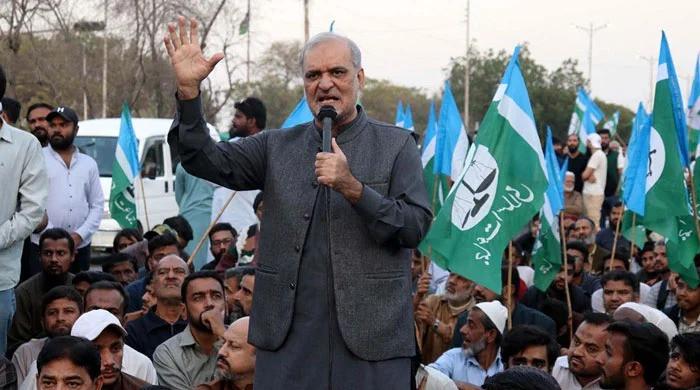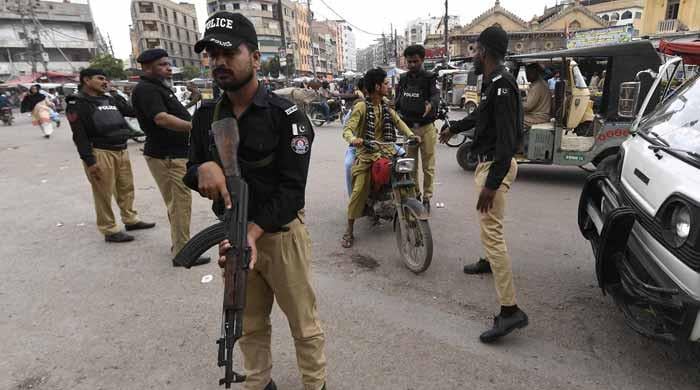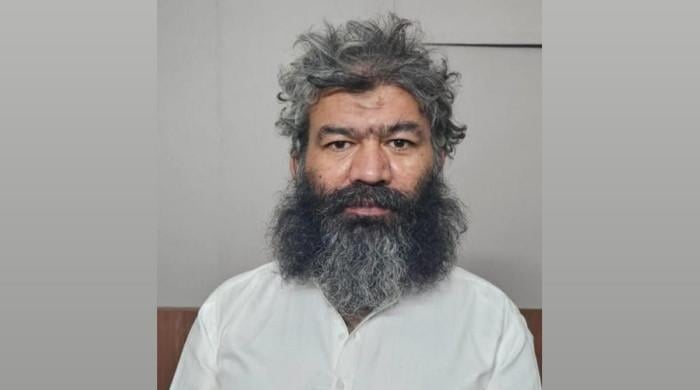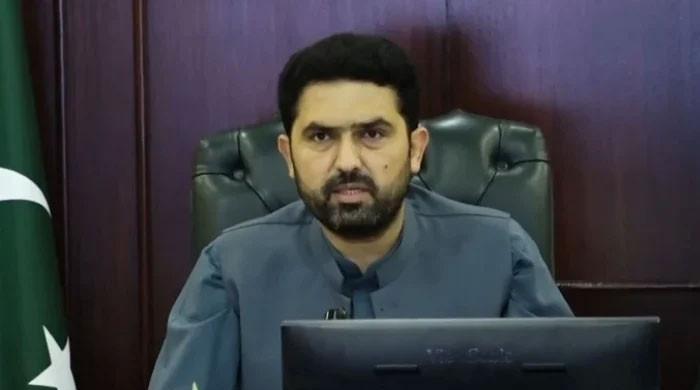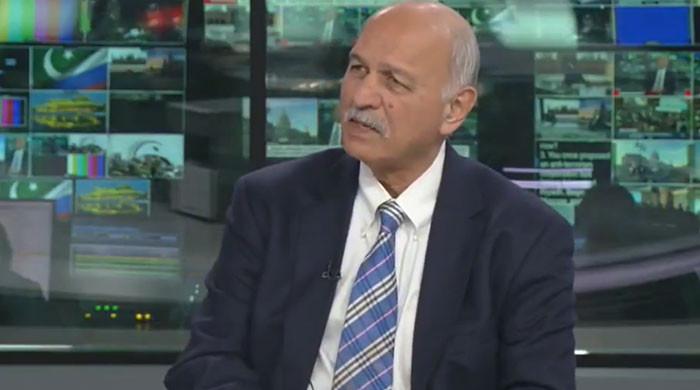Pakistan's judiciary and military: A paradox of continuing collusion, increasing conflict
"In the judicial history of Pakistan, some very good people did some of the worst things," says advocate Faisal Siddiqui
October 18, 2022
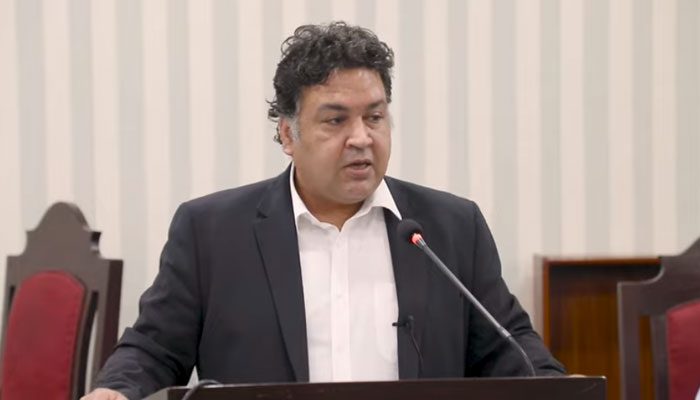
In the judicial history of Pakistan, some very good people did some of the worst things. Similarly, some very bad people did some very good things because they existed during different periods in history.
Good people existed in such bad times that they couldn't do anything good for the country, while bad people existed in such progressive periods that they couldn't do anything bad even if they wanted to.
These were the words of Faisal Siddiqui, a renowned Karachi-based advocate, practising constitutional, civil, and criminal law. He was speaking at the Quaid-e-Azam University, Islamabad.
Siddiqui shared his findings on the judiciary-military conundrum and the causes and explanations for the paradox between collusion and conflict often seen between the two institutions.
"Human beings are never free, especially those who exist in power structures. Irrespective of how powerful they are, including the DG ISI, the chief of army staff, the prime minister, or the chief justice, they do not enjoy absolute freedom."
"This paradox is not something that would disappear and one should not be scared of paradoxes either. The job of an analyst is not to solve the paradox, as that is the job of our political leaders. The analyst is supposed to explain the paradox," he said.
Understanding the judicial-military paradox through the lens of macro conflicts
Siddiqui said that when we look at the relationship between the judiciary and the military, we see a paradox, which means self-contradiction.
"We also see that these two [institutions] have been cooperating and colluding with each other, that too for a long time. But it leaves us confused when we see that they also go against each other."
"I am concentrating on the macro conflict that exists between them. Macro conflict refers to conflicts that challenge the fundamentals of both institutions," he said.
For example, he said, the military might want to impose martial law in the country but the judiciary resists or overturns it — thus challenging the foundations of military rule.
Akin to that, the military might challenge the fundamentals of the judiciary by sacking the judges that do not agree with the army. And this has happened during the time of military rule as well as during civilian rule.
"At various points in [Pakistan's] history, judges have been called upon to take oaths of allegiance to the military rulers and they resisted that. This is also a macro conflict that could shake the very foundations of the two institutions. One of the central elements through which the military controls this country is its intelligence agency. So when the judges challenge the power of the intelligence agencies, especially when it comes to human rights violations, like the missing persons issue and large-scale extra-judicial killings in Balochistan."
Since intelligence agencies are in the central part of the control of how the military exercises its power in this country, if they are held accountable that would also be a macro conflict.
"The reason why I call the paradox a factual historical statement is because of the examples of judicial cooperation [with the military]. One of the examples is the murder of Zulfiqar Ali Bhutto. In recent history, the dissolution of the National Assembly — when assemblies were dissolved twice during Benazir Bhutto's rule and when Nawaz Sharif had to dissolve the assembly himself during his tenure — was backed by the military."
In the recent past, we also see the process of accountability and the disqualification of politicians. In both of these cases, the judicial process has been used. These show the cooperation between the military and the judiciary, he said.
Why is there a paradox?
According to Siddiqui, there is a paradox because there are certain conflicts between these two institutions as well. In 1981, Supreme Court judges, including Justice Dorab Framrose Patel and Fakhrudding G Ebrahim, refused to take the oath of allegiance to the military.
And when martial law was imposed in 1999, judges — who had taken the oath of allegiance in the 1980s — refused to do so in 2000. These included former chief justice Saeed uz Zaman Siddiqui. And half of the Supreme Court refused to take the oath.
"So, the judges took oaths and also refused — this shows the paradox between the two institutions. Between 1977 and 1981, judges passed judgements against many martial law orders. Even though they legitimise the marital law orders issued by General Ziaul Haq. These led to the establishment of military courts. The Balochistan High Court, in 1979, had struck down these courts, terming them unconstitutional."
This created confusion. First, the judiciary accepted Zia’s orders but then also issued major orders against him.
After 2007, you see the longest period in Pakistan's history. During this time, you see the lawyers’ movement and the judicial movement, to a certain extent, responsible for preventing the imposition of martial law in the country. This was not a trivial matter, as many countries of the world still have martial law, including Egypt, Burma, and Thailand. These are developed countries but they witness military intervention every few years.
The reason why there has been no martial law in this country for the last 15 years is that the military now realises that the judges will not legitimise martial law.
Also, for the first time, a treason trial was initiated against a former dictator [Pervez Musharraf] and he also got a death sentence. Then the Islamabad High Court summoned the prime minister and military officials in the missing person’s case. And the type of critique you see against the military these days, the IHC has played a very important role in that.
But also, whenever a case is filed against the [military], the IHC either issues a stay order or nullifies the case. So, you also get to see this paradox.
Explaining the paradox in the theory
Quoting philosopher Karl Marx, he said: "Men make their own history, but not of their own free will, not under the circumstances they themselves have chosen.”
He said that Marx's theory means that historical developments cannot help you describe a person because people have limited free will. "The structural set-up in which people live defines them."
Explaining another theory, he said that if we wish to ask an institution to do "bad things", then it is important that we give it the freedom to do some good things as well.
"Because if the institution only does bad things, then it will stop doing it at some point, but if you confuse people about it, then it will keep performing bad deeds," he said.
Siddiqui said that if a person wants to think beyond four presumptions — reductionist single-cause explanation or dominant-cause explanation; people are not completely free, no matter how powerful they are; don't get into what the lawyers say; life is about contradictions.
“Life is all about paradox. Just like a man lives in contradictions, history also has contradictions. And I don't think that the conflict between the judiciary and the military can ever come out of this paradox."
Another responsibility has been imposed on them which is to hold all the other institutions accountable, Siddiqui said adding that they are now stuck in this contradiction. Another thing is that the judiciary is a status quo institution and also an instrument of change, which means it has to strengthen the state and also improve it — they are also stuck in this contradiction, the lawyer said.
"You have to understand this first explanatory tool that this paradox is structurally built,” he said.
Explanation number two, post-colonial state
"You are stuck in two different concepts. One is rule of law which ensures everything is according to the law and everyone is held accountable, while the other is the rule by a law introduced by the British that encourages everyone’s accountability but the ruler — this was before 1947. The 1935 Act was introduced by the British. There were several independent courts during their era, but they were colonial courts because they believed that all others should work according to the rules, but the rulers possess discretion — it’s called rule by law, not of law."
Mentioning another important thing that bothers Siddiqui, he said: "Why does the military need to have their rule legitimised by the judiciary? This doesn’t happen around the world. The reason is that your military is a non-revolutionary military since the start, unlike Nasir’s Egyptian military, which arrived to change the system."
"They, on the other hand, come to preserve their current system, so that their power structure does not get disturbed and it is a military, which is trained in the rule by law by the British. Their own institution works strictly according to rule by law and not rule of law. They are, in a way, socialised and habitual that everything should be in accordance with the law but no one should question them — but according to the law. This is the reason they have an addiction to judicial legitimisation. This was the explanatory tool number two."
Number three: historical context — the inevitable burden of historical development
Max Weber, a popular German social scientist, said that history is not a cab which you can stop at your own convenience. When several events take place, even the military can’t do anything about it, even the judiciary can’t do anything about it, he mentioned.
Citing some examples, he said: "In 1971, this country was broken, basically because of the military… because of martial laws. When they imposed the military martial law in 1977, they knew… and were given the advice after thinking thoroughly that if you abrogate the constitution this time, then the country might never [have] a constitution… so they thought that this was beneficial for them because if the country survives, they will survive. [They] were saved even after breaking half of it. So when such events happen… you can’t say that you will do what you did in the 1950s."
"He was very close to him; their friendship was very strong. But when Musharraf introduced the NAB law in 2001, Irshad struck down half of that law, calling it unconstitutional. So when he was so close to him and did every ‘wrong’ job for him, then why did he do that? So what I’m saying is that it’s history’s burden, which is why it took three years. And Irshad wrote in his judgement’s review that if he [Musharraf] doesn’t conduct elections, then the legitimisation of 1999’s martial law [by the judiciary] will be deemed to have been withdrawn — to make it unconstitutional, which is why elections were conducted after three years. So a very bad person does a very good job because he is in a certain historical period that compels him to do so."
Number four: the world has changed
When Ayub Khan and Yahyah Khan were ruling, it was the time when there was a coup every other day. From 1949 to 1970, 225 successful coups were imposed, and now the world has changed. The world was different in 1999. In 2007, the world was different. When the world changes, even Pakistan has to change — even if they have to repeat the same atrocities. But ruling classes have to change in order to remain the same, this is the principle.
Number five: Past not acceptable
The fifth explanatory tool, he said, is that during the times in the 50s, 60s, and 70s you could discuss such matters, for example, the doctrine of state necessity and the doctrine of revolutionary dictatorship. But during the 80s, 90s and 2000s, these discussions were not accepted, especially in a globalised world, where no one accepts such discussions, where these judges participate in bar conferences and interact with people.
Number six: Judges as reflective strategic actors
Siddiqui said Pakistan's judicial history tells us that judges work in three ways — strategic cooperation/silence, strategic defiance, and strategic defection.
He gave the example of Justice Mohammad Haleem, who became the chief justice in 1981 and Gen Zia humiliated him and kept him as the acting chief justice.
But after 1986, the same judge gave a damning judgement in the Benazir Bhutto case — and acted like a strategic actor. Giving an example of Justice Asif Saeed Khosa, Siddiqui said that many believe that he was involved with the military in punishing Nawaz.
However, when Khosa became the chief justice, he performed a brave act, Siddiqui said, adding that had it not been for the former CJP, Gen Musharraf would not have been tried for treason.
He said that Khosa raised the issue of the army chief's extension.
Then there is the last one, which is important for understanding the judiciary and politics post-2007, he said. Siddiqui said that due to digitalisation, smartphones have become an important part of everyone's lives.
"Internet, phone, media, social media — this has aspired people, who are not part of the middle class, to become a part of the class."
This is not something trivial, as the whole world is changing. Technology, especially digitalisation, is also changing the way we think about ourselves. So, how can it be that the judiciary is not affected by this?
The importance of the aspiring middle class is that the judiciary has become completely indigenised as there are very few people therein who have studied abroad. Earlier, there were barristers who used to dominate the judiciary, and foreign-qualified lawyers used to exert dominance. But now, equally qualified local graduates dominate the judicial system now. And all of them are part of the middle class so, they identify with the values of their socioeconomic class.
That’s why the aspiring middle class is rising, especially after Musharraf’s rule. They cannot avoid how their lives have been colonised because of digitalisation. In the history of Pakistan, this level of discussion, information about their internal workings, that too on day to day basis, has never happened.




